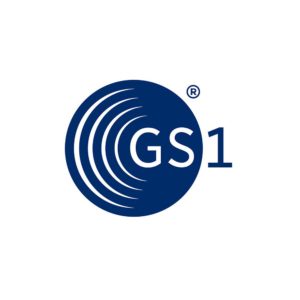Transparency and trust are paramount for fresh produce exports and the Australian cherry industry is leading the way. During the GS1 session, Patrick Ulloa, Export Development Manager at Cherry Growers Australia, will highlight the importance of having confidence in producer claims and credentials, and the role that GS1 and other international standards play in underwriting confidence in global trade systems.
Testing, inspection, and certification (TIC) systems provide the backbone of global quality assurance and safety, ensuring trust in international trade through mutual recognition agreements. As food supply chains become more data-driven, supporting product conformity and certification systems face new challenges to digitalise and deliver more value. This is creating challenges and new opportunities for certificate issuing bodies, scheme operators, certificate holders and end users, including government regulators.
Join us on April 9th to delve into GS1’s collaborative efforts with the product conformity community in recent years. Together, we have been developing a framework aimed at enhancing supply chain traceability and supporting the digitalisation of product conformity and certification systems. By leveraging ISO-compliant identifiers for parties, products, and documents, and employing data-sharing standards, we aspire to establish a common approach for global conformity systems.

Patrick Ulloa will address pivotal questions about product certification, including methods for verifying product certification, determining the trustworthiness of certifying bodies, and ensuring the current validity of certifications.
GS1 Australia, in partnership with the National Association of Testing Authorities and the Joint Accreditation System Australia and New Zealand, has published a joint discussion paper on the role of global data standards in addressing these pressing questions. This collaborative effort has garnered significant interest from stakeholders, prompting the development of a technical sandbox to facilitate industry pilots, thereby refining the proposed foundations.
The activities in Australia to digitalize product conformity and certification systems have sparked international interest, leading to concerted efforts on a global scale. The United Nations Centre for Trade Facilitation and Electronic Business (UN/CEFACT) is actively working on requirements specifications and recommendations for digital product conformity and claims. Indeed, the TIC sector plays a fundamental role in facilitating legitimate trade globally, leveraging accreditation under well-established frameworks of ISO/IEC standards.
New demands from governments, regulators and users, particularly in the area of environmental performance (such as whole-of-life carbon accounting), are placing greater onus on the need to be able to validate and discover data throughout the supply chain in real-time. Emerging demands from governments, regulators, and users, especially in areas concerning environmental performance, have heightened the necessity for real-time validation and data discovery throughout the supply chain. In a recent UNECE UN/CEFACT white paper titled ‘Digital Product Conformity Certificate Exchange,’ several challenges with existing conformity data exchange systems were identified. These challenges include the lack of automatic updates for paper/PDF copies of certificates, vulnerabilities to false connections between conformity data and physical product supply, and concerns regarding the rigour of conformity assessment outputs.
To address these challenges and support transparency in digital trade, UN/CEFACT proposes a process for facilitating verification of conformity assessment outputs. This process entails a flexible data model for encoding key conformity assessment elements in a machine-readable format, independent of the accessibility or digitalization of underlying attestations. Additionally, a platform-independent mechanism for interoperable data access/exchange is proposed, based on open-source standards and consistent with UN/CEFACT recommendations.
The Business Requirements Specification (BRS) provides a vital technical underpinning for digital product passport initiatives and digital single window, while empowering control by conformity assessment bodies over the integrity of their data and their customers’ requirements.
The UN/CEFACT has responded to the growing demand for policy action to ensure the integrity of product sustainability claims and corporate sustainability disclosures. Recommendation 49, ‘Transparency at Scale’ provides policy guidance on implementing traceability and transparency to enhance sustainability outcomes. It aims to ensure the verifiable integrity of product sustainability claims, and allow the cost-effective exchange of value chain data across borders, across industry boundaries, across different technology platforms and between actors with different capabilities through interoperability standards. It also provides for confidentiality, privacy, and security so that each actor can choose their own balance between transparency and confidentiality. Furthermore, it aims to make credentials and claims more tangible to increase their value in business bottom-line reporting and their utility to society.
The Australian cherry industry’s move towards automated traceability is a significant step towards enhancing supply chain transparency and trust. It is a testament to the power of innovation and collaboration in meeting customer expectations and industry standards. As Patrick concludes, “This is just the beginning. We are excited about the future of traceability in the Australian cherry industry and beyond.”
Please join us in this special conference session on Tuesday, April 9th, 1:30-2:15 p.m. I hope to see you there!
For more information, please visit www.australiancherries.com.au and www.gs1au.org.
For more information, please visit www.australiancherries.com.au and www.gs1au.org

